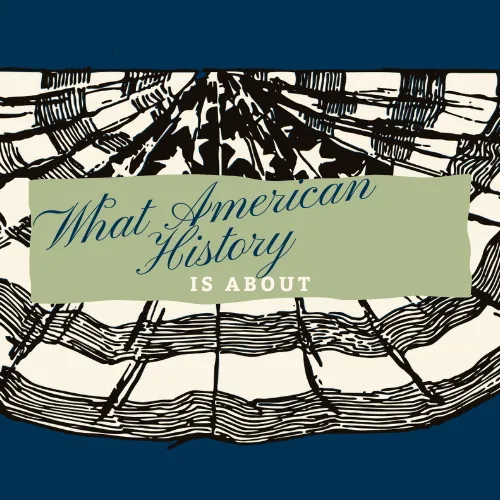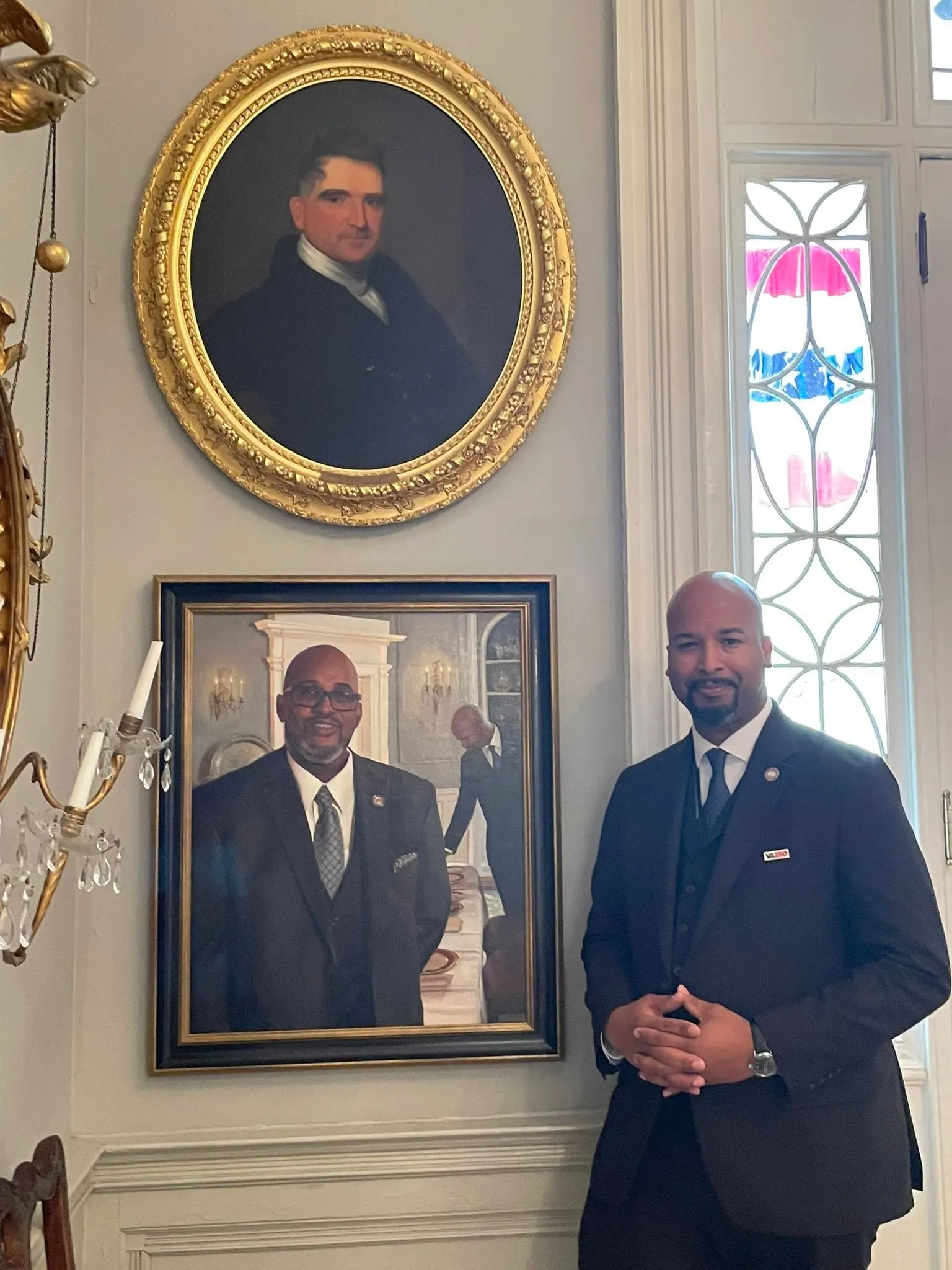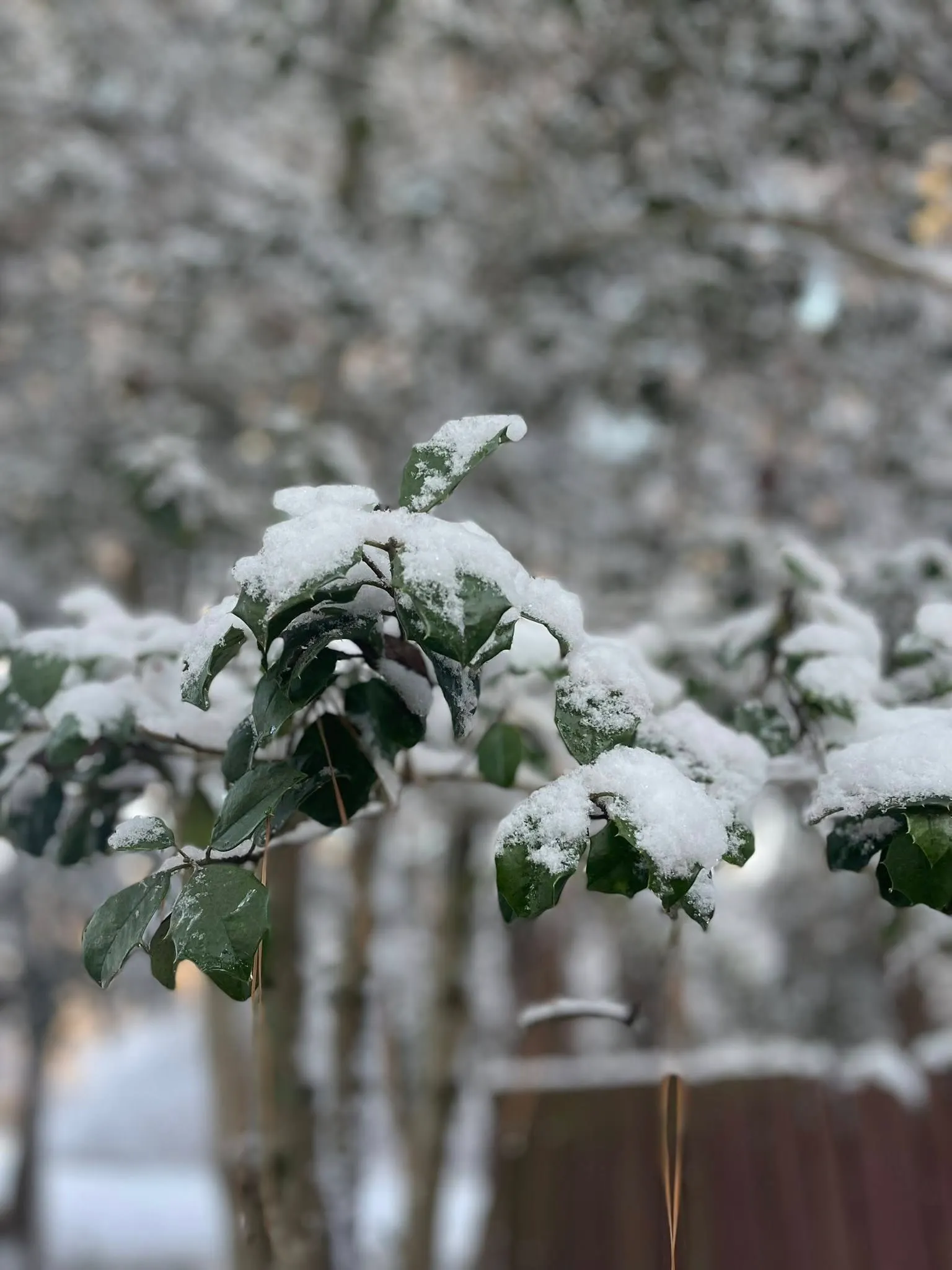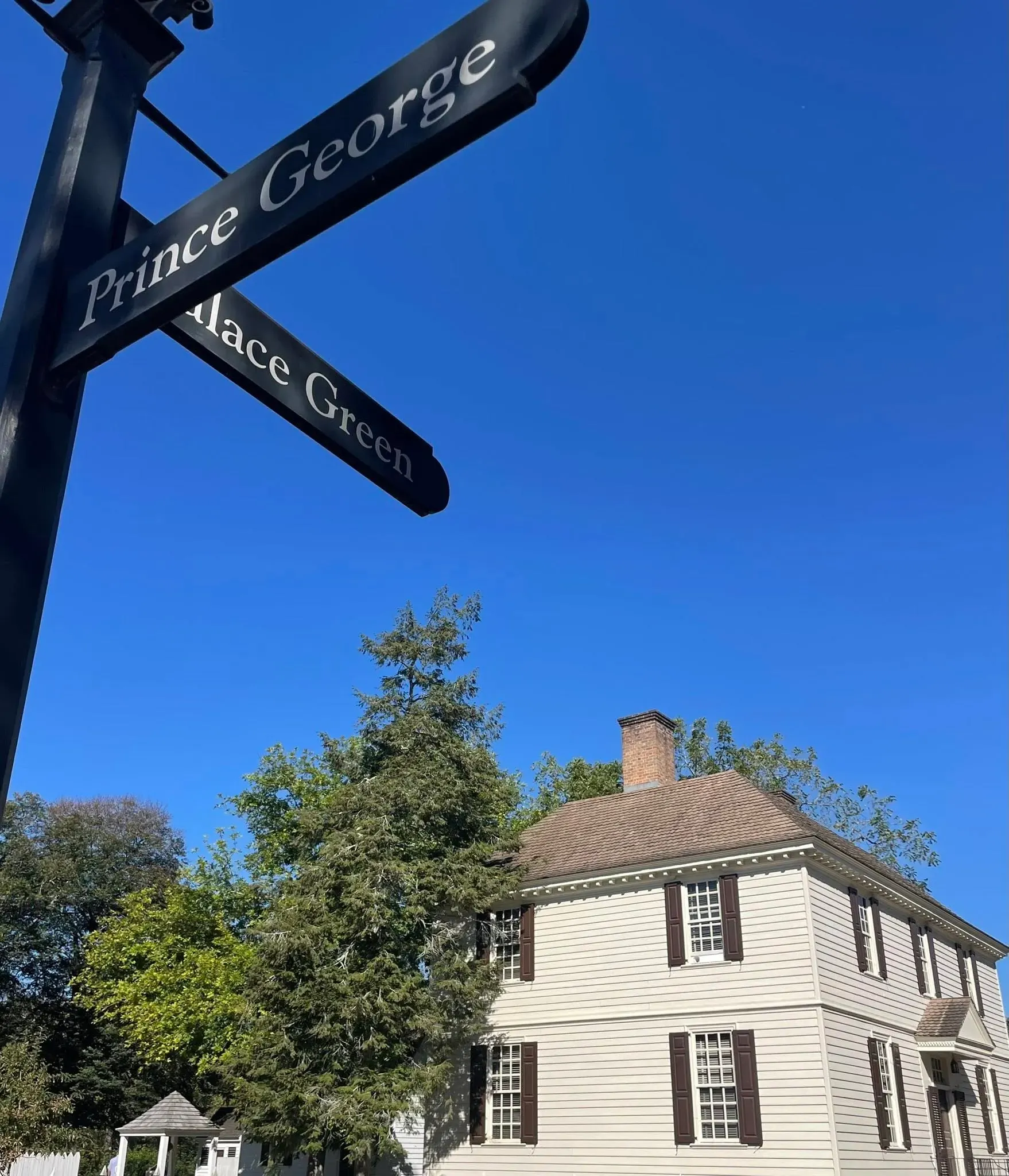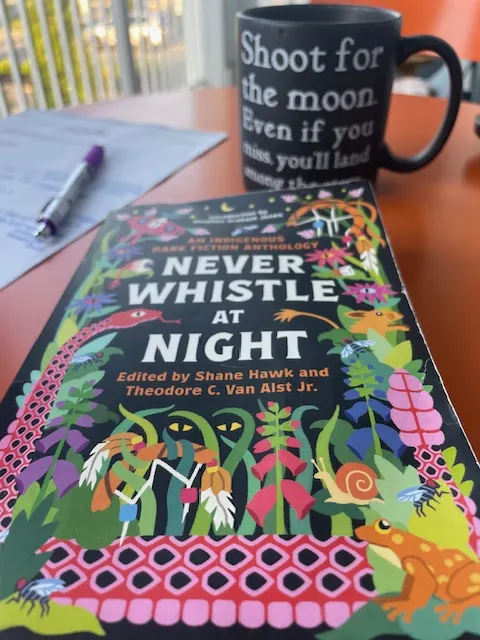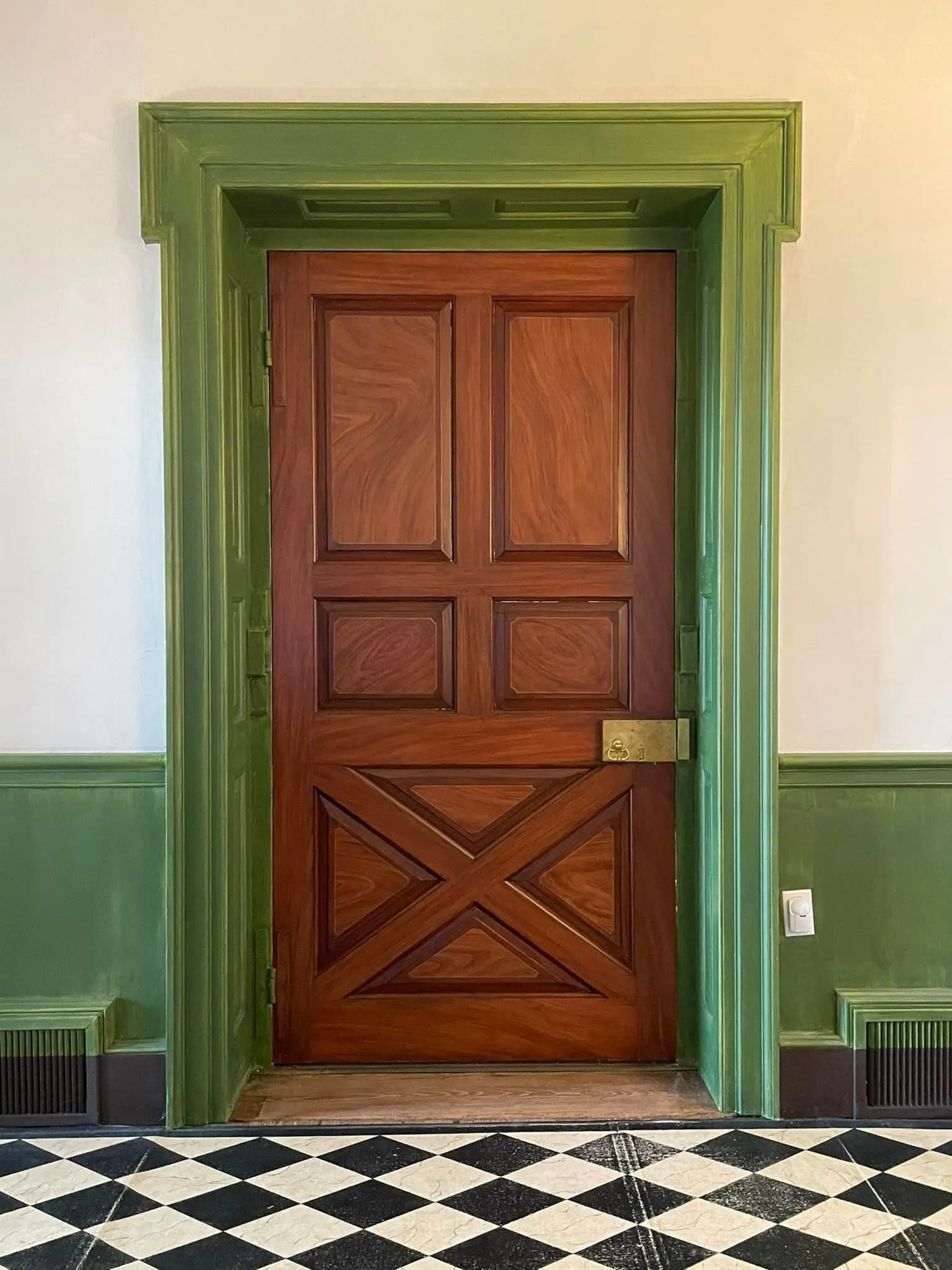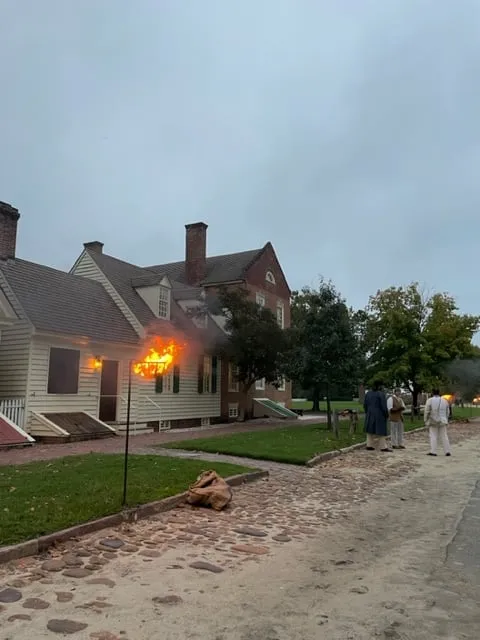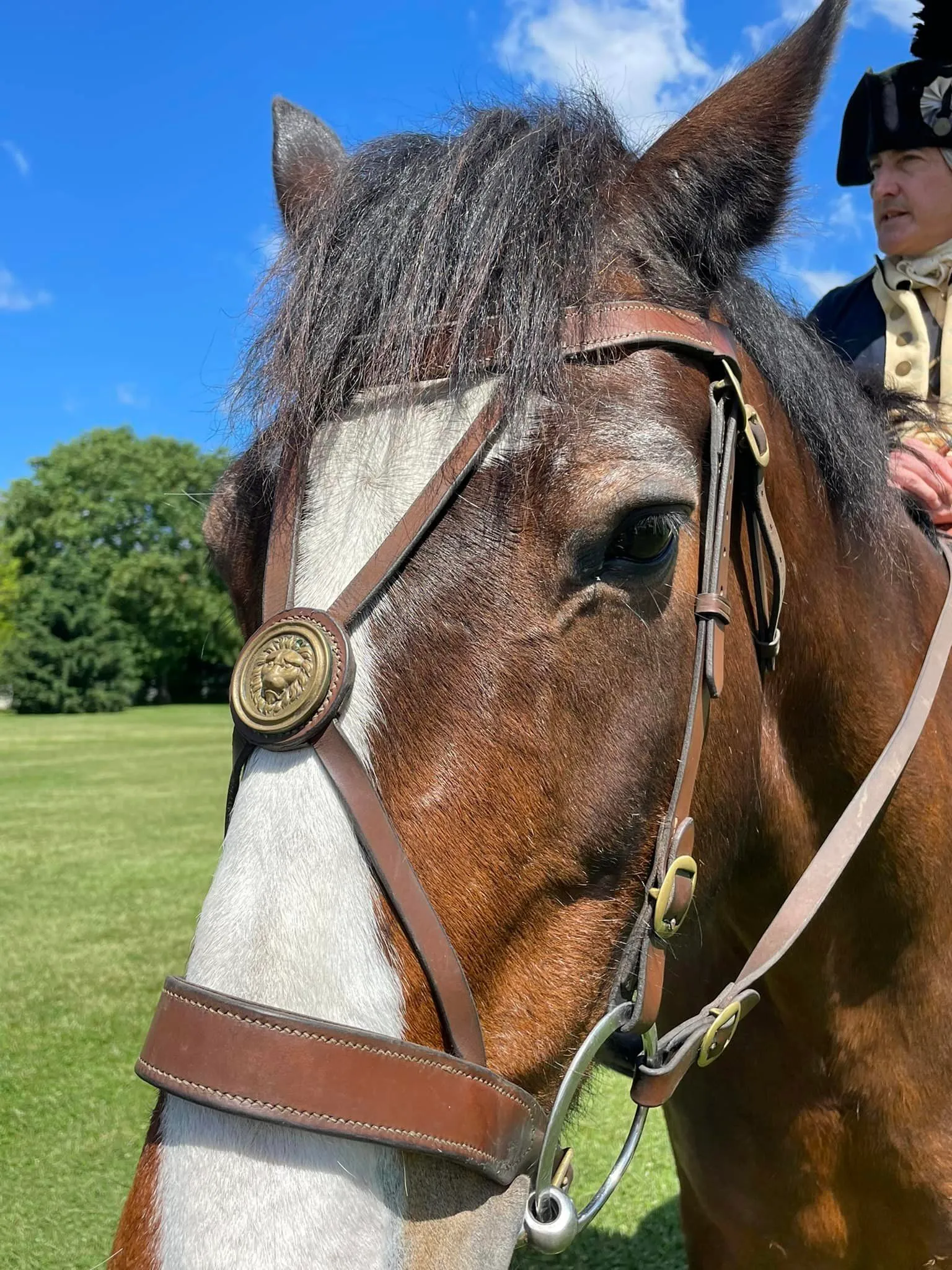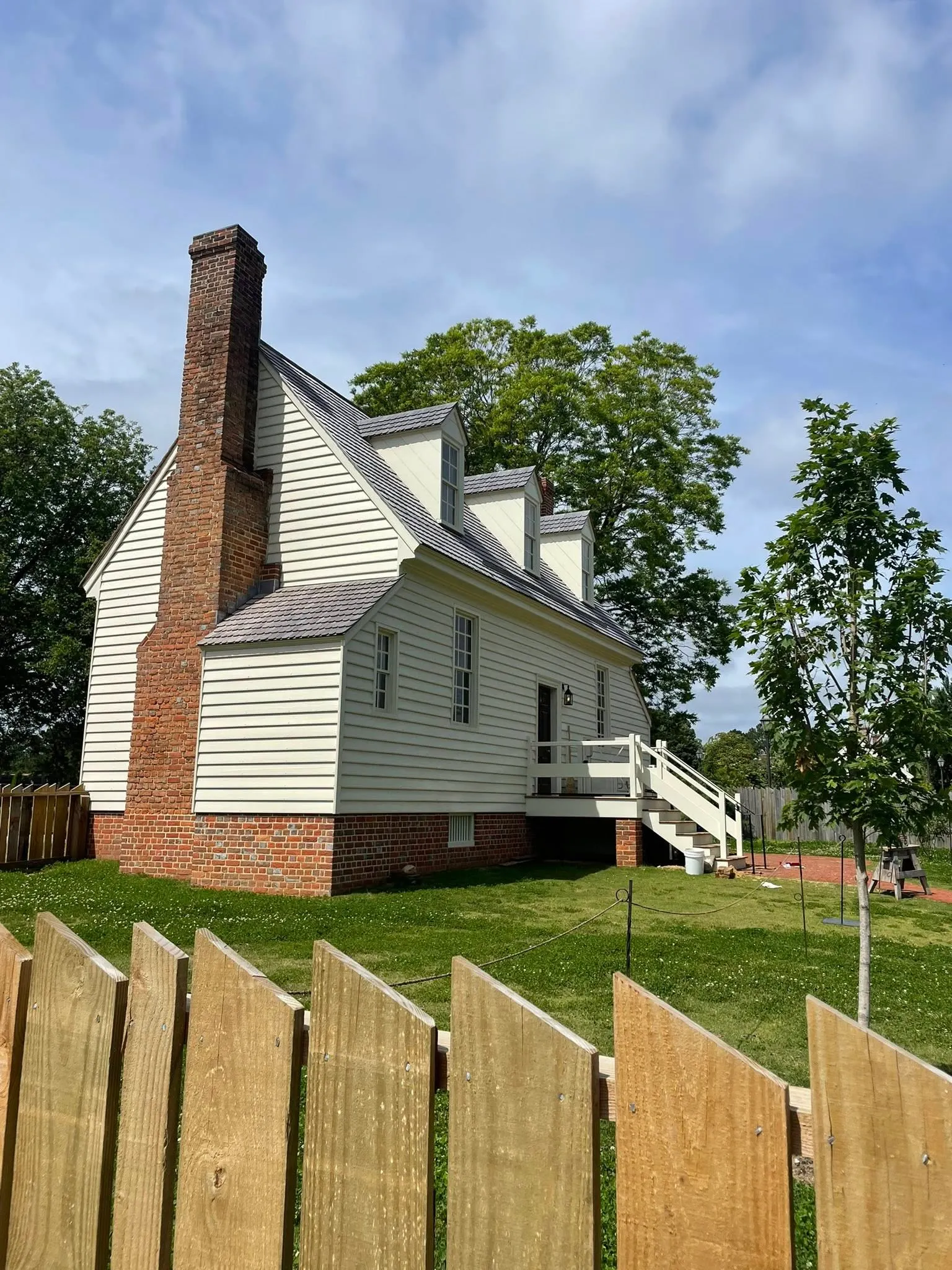Revolutionary Perspectives: Discovering the American Revolution Through 18th Century Letters
Finding 18th century perspectives by reading letters.
How a performance inspired me.
Let's start with this: there are as many perspectives on the American Revolution as there are people. Some believe we're still fighting it- and that's a fair point as we continually strive for a "more perfect union" but that's for another post and another day.
I've been attending a performance that runs daily here in Colonial Williamsburg (CW). It's title is Two Steps Forward.
The concept: sharing perspectives of various people throughout the revolutionary period. It could be Thomas Jefferson discussing his thoughts as he prepares to commit treason with his quill. Or Sarah Riggs, who is thinking out loud about how the actions of Virginia's leaders will impact her new baby and their future as tobacco farmers.
Each day brings a mix of performers, who are historians, and tell us something about the impact of the American Revolution on 18th century Virginians- no, Americans.
I love stories. As you know if you've seen my mission statement, this performance is one that I'd find inspiring to dig deeper.
What was happening behind closed doors and in the minds of the people living throughout the Colonies during this pivotal period in early American history?
Necessary disclaimer: As a blogger, I use affiliate links sometimes! I may receive commission from purchases I share; it does not change your price but sometimes you might get a discount.
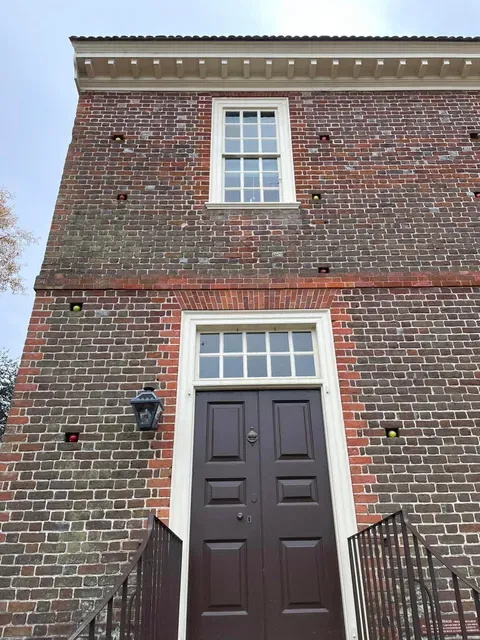
Door of the Palmer House, private residence, Colonial Williamsburg
Primary sources are vital, but there are considerations.
The historians bringing us Two Steps Forward use available primary sources to bring the past to life.
My natural next step: find letters related to the American Revolution. On a recent visit to CW's John D. Rockefeller Library (the Rock) I'd found a book that fit my current purpose. So yesterday, I popped in and pulled "Letters on the American Revolution 1774-76" off the shelf and decided I'd share three excerpts with you all. One from each year.
Please keep the following in mind:
- letters are the perspective of the writer; they may or may not be factual and for accuracy, one should always dig deeper
- these letters come from newspapers- all British- so what is printed may be impacted by this
- I attempted to transcribe as printed in the book, that includes the grammar, punctuation etcetera
- this set does not name any of the letters' authors
Author's note: citation for letters and any notes referencing 'the book' = "Letters on the American Revolution 1774-76," edited by Margaret Wheeler Willard, Houghton Mifflin Company, The Riverside Press Cambridge 1925
Letter 1: 1774
Found on pages 16-17 of the book.
Extract of a letter from Boston Nov 24 (1774), printed Feb 25, 1775 in Morning Chronicle and London Advertiser:
“It is a great injustice to the Patriots on your side of the water to charge the Scots here with being enemies to the Americans. A Scotch shoemaker was the leader of all our mobs, during the time of the Stamp-act, which pulled down the Stamp Office, demolished the Lieutenant Governor’s house, and broke into the Secretary’s and forced him to the Liberty Tree, where they swore him out of office.”
Goes on to talk about more patriotic Scots.
Ends with:
“I hope you make this public, that the stains that have been thrown upon the Scotch in New England, for their want of patriotism, and for their taking part with Government, may be wiped off.”
Considerations:
- concerns about the loyalty of neighbors, specifically the Scots in Boston, prompted this letter's writer
- for information about Boston's Liberty Tree, click here
- in context, over 100 men dumped tea in the bay in December of 1773; this was written nearly a year later so tensions were clearly high in the region
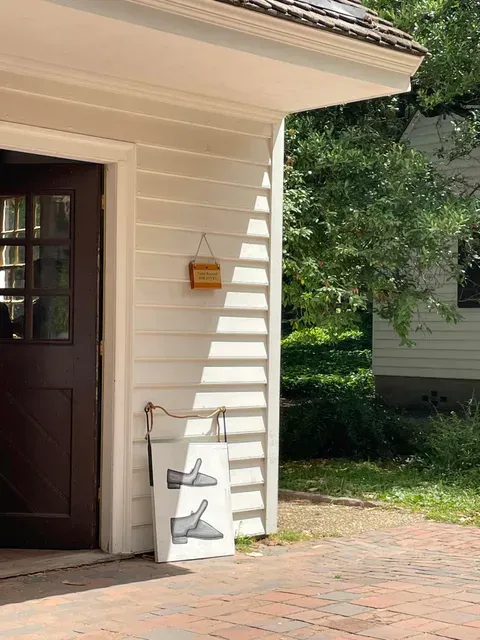
Entrance to Colonial Williamsburg shoemakers shop
Letter 2: 1775
Found on page 114, citation on page 112
A Part of a Letter from Salem, dated May 21, 1775, printed in the Morning Post and Daily Advertiser, July 13, 1775
Extract:
“The King’s troops at Boston are far from being in that despicable plight which the London papers assert them to be; they live as well as any troops in his Majesty’s garrisons abroad; they have fresh meat once every week, and, what is particularly conducive to their health, plenty of garden stuff, particularly potatoes. Supplies are brought weekly from Quebec and the Westindia Islands, as well as from Ireland and Great Britain. The expence, however, to the government is amazing; and if should last long, which God forbid, cannot fail of being felt very severely in England.”
Considerations:
- could this letter be written by a Loyalist as he (likely "he") seems concerned about the cost to England?
- what is being said in the London papers that prompted this letter?
- we have an opportunity to learn more about supply routes as well as the daily life of the soldiers in Massachusetts
Letter 3:
Found on page 312 of the book.
Extract of a letter from a gentleman of Philadelphia, to his friend in London, dated Philadelphia May 18, 1776 from Gazetteer and New Daily Advertiser, July 13, 1776.
(you know what happens in July after Virginia is the first to vote for independency in May)
Extract of the extract:
“….You tell me that nothing will appease your Ministry but unconditional submission. Alas! Sir, such language may answer the purpose of a Bute, a Mansfield, a North, a Sandwich, and a Rigby, but is has no weight, and makes not the least impression on an American Congress, further than that of uniting them more firmly in the godlike cause they were engaged in. Did your hectoring Ministry know the preparations we are making, the happy union that subsists, and the determined spirit of all ranks of people to die or live free, they would be apt to adopt different language: but bullying has been the business of Ministry, and their minions, ever since the unnatural contest began.”
Considerations:
- this letter seems to serve as a warning to those in England who may be living in a state of naivete
- at this point, a "gentleman" of Philadelphia, along with all Colonists excepting those who voted for independency in Virginia, unbeknownst as far as Philadelphia, are technically still British citizens in May, yet he uses the word "your" in describing the Ministry- it's telling in my opinion
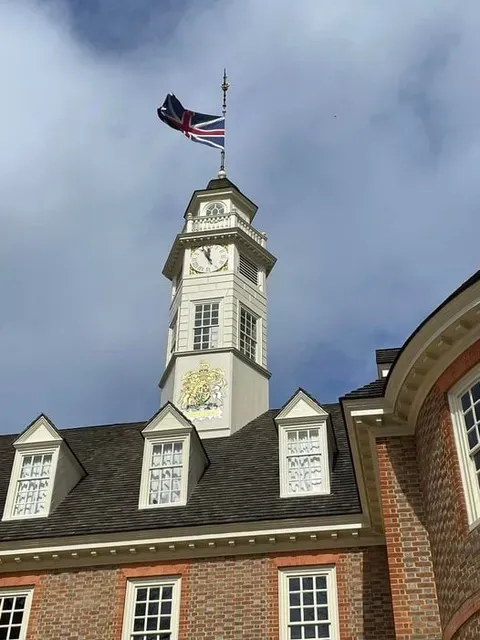
Capitol (reconstructed), Colonial Williamsburg
Calls to action.
For me: dig deeper on multiple topics.
I'll continue to share stories and always look for more information to back up the perspectives and/or find out what others saw and felt about the same topics. This definitely means more time in the Rock looking at books of letters and letters printed in Virginia Gazettes.
Reading THIS set of letters emphasizes my personal interest in learning more about the feelings of Loyalists (or those considered to be) as well educating myself on some of the British papers.
As for you, my friends, if you're interested in this set of letters, you can grab the book on Google books by clicking here.
To take it a step further: do you want to share the Revolution with the kids in your life? Check out this tool from History Unboxed, a fantastic company I've partnered with.
Closing words from history.
In addition to the letters I've shared from the book, I want to offer this extract up from one of the three years mentioned: 1774. Benjamin Franklin, in London, to his son William, Colonial Governor of New Jersey who remains loyal to the King. It's a fascinating read, knowing what's to come; you can click here to read it in full, with citations.
From Benjamin Franklin to William Franklin, 7 September 1774
To William Franklin
ALS: British Museum; letterbook draft: American Philosophical Society
London, Sept. 7. [1774]
Dear Son,
I received yours of July 3. from New York, with the Bill of Exchange for Forty Pounds, Cobham on Bond & Ryland, which is carried to the Credit of your Account.2
(excerpt)
I do not, so much as you do, wonder that the Massachusetts have not offered Payment for the Tea; 1. Because of the Uncertainty of the Act which gives them no Surety that the Port shall be opened on their making that Payment. 2. No specific Sum is demanded. 3. No one knows what will satisfy the Custom house Officers; nor who the “others” are that must be satisfied, nor what will satisfy them; and 4. after all, they are in the King’s Power how much of the Port shall be opened. 9 As to “doing Justice before they ask it,” that should have been thought of by the Legislature here, before they demanded it of the Bostonians. They have extorted many Thousand Pounds from America unconstitutionally, under Colour of Acts of Parliament, and with an armed Force. Of this Money they ought to make Restitution. They might first have taken out Payment for the Tea, &c. and return’d the Rest. But you who are a thorough Courtier, see every thing with Government Eyes. 1
Are you enjoying the blog? Tip me using my online tip jar!
There is a huge practical disclaimer to the content on this blog, which is my way of sharing my excitement and basically journaling online.
1) I am not a historian nor an expert. I will let you know I’m relaying the information as I understand and interpret it. The employees of Colonial Williamsburg base their presentations, work, and responses on historical documents and mainly primary sources.
2) I will update for accuracy as history is constant learning. If you have a question about accuracy, please ask me! I will get the answer from the best source I can find.
3) Photo credit to me, Daphne Reznik, for all photos in this post, unless otherwise credited! All photos are personal photos taken in public access locations or with specific permission.
